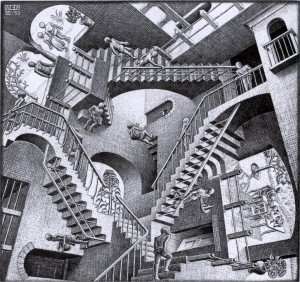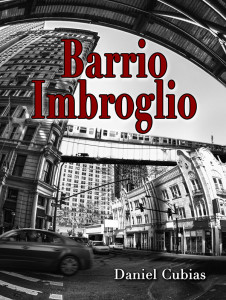It was not my intention to create a trilogy about the Latino publishing scene, but that is what has happened. My previous two articles were about big publishing’s snub of Hispanic authors and the rise of small presses. And now I will complete the triumvirate by detailing the virtues and flaws of self-publishing e-books.
But for this analysis, I needed an insider’s perspective. So I sat down for coffee with Pedro Huerta, Amazon’s Director of Kindle Content for Latin America.
[Full disclosure #1: I have recently self-published a novel on Amazon.]
[Full disclosure #2: I don’t drink coffee. I actually had tea.]
Huerta is excited about Amazon’s second annual Indie Literary Prize for Spanish-language authors. The contest, which runs from July 1 to August 31, is open to any writers who upload their Spanish-language e-books to Amazon’s KDP platform. From the presumably hundreds of entries, five finalists will be named. The winner will be published in print by La Esfera de los Libros, and his/her book will be translated into English and published in digital, print, and audio formats by AmazonCrossing.
“Authors can submit a 10-page poem or a 500-page novel,” says Huerta. “We’re open to all genres, and it’s a great opportunity for new writers to get discovered.”
Of course, it’s fair to ask if winning the contest will really help Spanish-language authors further their careers. After all, self-publishing is a crowded, frenzied mob scene where high-quality books struggle to stand out from the waves of semi-illiterate, self-righteous and just plain insane manifestos that wannabe authors hurl at readers.
No, it’s not pretty.
Now add in the fact that we’re talking about Spanish-language e-books, which have an even smaller audience in America than English-language printed works do.
However, Huerta is undeterred. He says that self-publishing is the democratization of literature, where even the most outlandish writers can find an eager audience. And he says that if anything, this approach is more relevant for people who prefer to read in Spanish.
“Even in the best bookstores in America, the Spanish-language section is limited,” Huerta says. “What we’re doing is bringing the greatest bookstores in Mexico City, in Barcelona, to everyone in America.”
But will Americans be buying? Well, as we all know, the Hispanic population in America is increasing. And bilingualism, once an exotic and politically suspicious activity, is on the rise as well. Thus, it stands to reason that the audience for Spanish-language books is also getting larger.
Furthermore, Latinos are more likely to use mobile electronic devices than the general population. Because Hispanics are so plugged in, it’s pretty easy to imagine Latino readers devouring e-books on their Kindles, Nooks, and laptops.
Amazon is aware of these intersecting cultural trends, and the company doesn’t want to be left behind.
“Latinos love to read,” Huerta says. “And we want them to read. Whether it is a traditional book or on a Kindle, we want reading to be a daily part of everyone’s life.”
So will winning Amazon’s contest set a Spanish-language author on the path to becoming a household name, a sort of Latino version of Dan Brown or Stephen King? Huerta says that’s a possibility, but he adds that this is not really the point.
“There are Latino authors who want to be the next John Grisham, and that’s great,” Huerta says. “But the goal is increased visibility for all good writers. It’s not just about winning the contest. It’s about encouraging authors to get their work out there, and helping readers discover them.”
Huerta imagines a future where authors take wild, experimental chances because no one can prevent them from publishing online. He says that many writers will create books that are aimed at an audience of a few hundred, or even just at their immediate loved ones. And he points out that another advantage of e-books is that they never go out of print.
“What are the stories to be told?” Huerta asks. “Let’s capture all of them, online, and keep them forever.”







